MercoPress. South Atlantic News Agency
Stories for April 21st 2023
-
Friday, April 21st 2023 - 15:11 UTC
Argentine President Fernández won't seek another term: “We did not achieve everything”
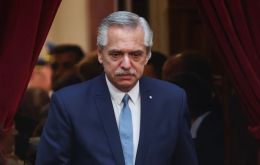
President Alberto Fernández of Argentina announced in a video message on his social media that he will not seek re-election in the upcoming presidential elections. In his message titled “My decision,” Fernández admitted the main problems of his government's management and described the defeats in economic matters of his administration.
-
Friday, April 21st 2023 - 10:45 UTC
Uruguayan agricultural emergency extended until when?

Uruguayan authorities Thursday announced the current declaration of agricultural emergency will be extended until September from April 24.
-
Friday, April 21st 2023 - 10:41 UTC
Chile announces national lithium strategy
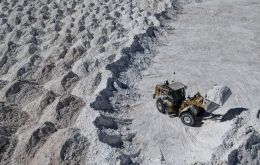
Chilean President Gabriel Boric Font Thursday launched a new state lithium policy which includes the creation of the National Lithium Company and the participation of private companies in new developments. Chile is the world's second-largest lithium producer, behind Australia.
-
Friday, April 21st 2023 - 10:35 UTC
Petro meets Biden at the White House and asks for help fighting drug trafficking

During a meeting Thursday at the White House, Colombian President Gustavo Petro asked his US colleague Joseph Biden for more boats, drones, and ships to stop drug traffickers in the South American country because so far such a war has “failed.”
-
Friday, April 21st 2023 - 10:08 UTC
Except for Argentina, the ECLAC study highlights that in the region “inflationary pressures have slowed down”
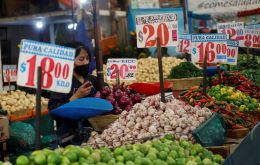
According to an ECLAC (Economic Commission for Latin America and the Caribbean: an organization of the United Nations that supports trade and economic growth in Latin America and the Caribbean) study released Thursday, Latin America's growth for the year 20023 was forecast to be averaging 1.2%.
-
Friday, April 21st 2023 - 10:05 UTC
Lavrov strengthens Moscow's ties with Havanna
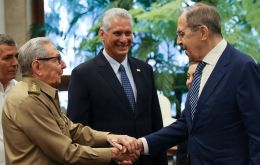
Russian Foreign Minister Sergei Lavrov Thursday told Cuban President Miguel Díaz-Canel that Moscow continued to reject the economic, commercial, and financial blockade imposed by Washington on Havanna. The Russian diplomat also met with former President Raúl Castro and with his Cuban counterpart, Bruno Rodríguez Parrilla during the last stop of his Latin America and Caribbean tour which included Brazil, Venezuela, and Nicaragua.
-
Friday, April 21st 2023 - 10:05 UTC
Argentine peso keeps sinking against US dollar
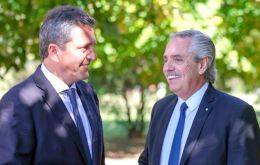
The Argentine peso kept sinking Thursday against the US dollar with the “blue” (a euphemism for “black market”) rate hitting AR$ 440 before closing at AR$ 437/AR$ 432 (buy/sale).
